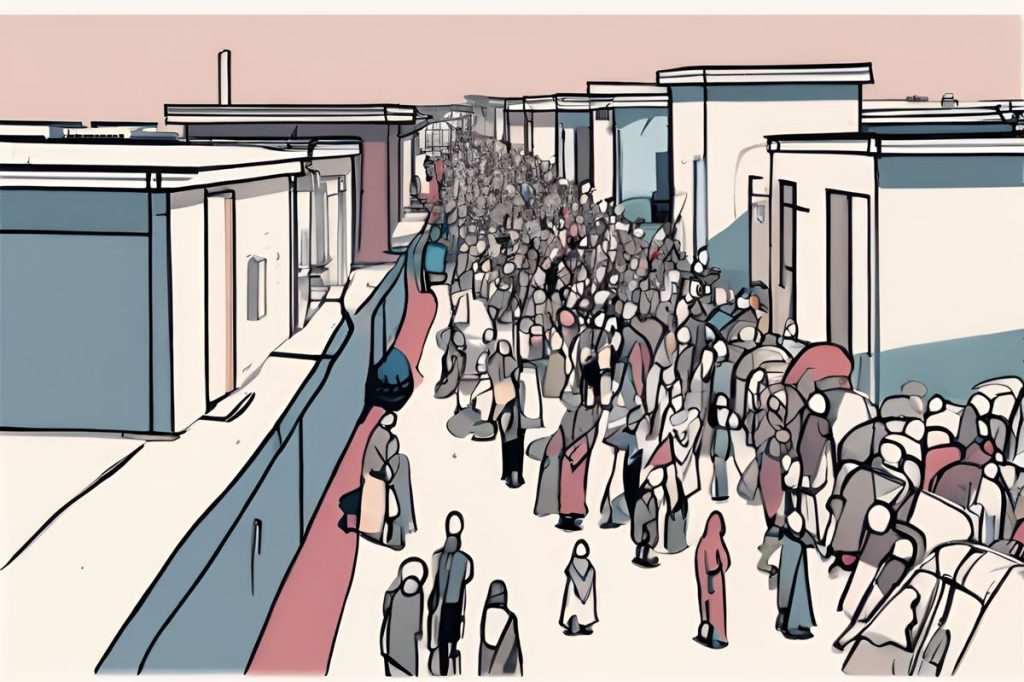Refugees in Cyprus have been living in unsafe buildings for over 20 years, despite promises of reconstruction. The government’s delays in addressing the housing crisis have left hundreds in precarious conditions, highlighting the urgent need for immediate action and attention to ensure the safety and well-being of these vulnerable communities.
What are the housing conditions for refugees in Cyprus?
Refugee communities in Cyprus face inadequate housing, with buildings declared unsafe over 20 years ago still being occupied. Despite government promises for reconstruction, no substantial progress has been made, leaving hundreds in potentially dangerous living conditions. The safety and future of these refugees remain critical issues needing urgent attention.
Ongoing Housing Safety Concerns
Refugee communities in Cyprus have been living under the shadow of unsafe living conditions for more than 40 years. A significant revelation came during a meeting of the House refugee committee, where it was disclosed that several refugee estate apartment buildings, declared unsuitable for habitation over 20 years ago, are still occupied. A structural adequacy study conducted in 2000 concluded that the buildings were unfit for living. However, the state allowed refugees to continue residing in these precarious conditions, raising concerns about their safety and well-being.
The buildings in question are primarily located in the Strovolos 2 refugee estate, but the issue extends to an additional nine estates across Cyprus. Residents have been waiting for solutions since the buildings were first assessed. Despite promises of reconstruction, no substantial progress has been made, leaving hundreds in potentially dangerous living conditions.
Government Response and Delays
The Acting committee head, Akel MP Christos Christofides, highlighted the government’s initial decision in 2000 to construct new buildings rather than repair the existing structures. This decision laid the groundwork for a protracted wait, with residents anticipating new homes for approximately 24 years. The committee has since sought concrete answers regarding the safety of these buildings and the future of property titles, but satisfactory responses remain elusive.
Christofides pointed out that the committee had not received any guarantees regarding the structural integrity of these apartment buildings. The lack of clarity and action has only compounded the frustration of those affected. Furthermore, the discussion touched upon the Ktizo programme, a modern initiative aimed at revamping refugee estates. However, the at-risk buildings were not included in this programme due to their earlier earmarking for reconstruction.
Challenges and the Path Forward
The committee meeting shed light on various factors contributing to the delays in addressing the housing crisis. Among these were a freeze on the rebuilding programme in 2013, failed bids for certain buildings, and setbacks involving the sewerage company of Nicosia and the electricity authority. Christofides expressed understanding for these complications but emphasized that they pale in comparison to the urgent need to ensure the safety and security of the residents.
In the upcoming sessions, the committee aims to convene with the interior minister to discuss not only the Ktizo programme but also the pressing need to address the long-standing inadequacies of the at-risk buildings. The plight of the refugees living in these estates remains a critical issue that calls for immediate attention and swift action.
It is evident that addressing the housing crisis for refugees in Cyprus requires a multifaceted approach, involving not only infrastructural solutions but also a commitment to the safety and dignity of all residents. As the situation unfolds, the international community watches, hoping for a resolution that finally brings solace to those caught in limbo for far too long.
What are the housing conditions for refugees in Cyprus?
Refugee communities in Cyprus face inadequate housing, with buildings declared unsafe over 20 years ago still being occupied. Despite government promises for reconstruction, no substantial progress has been made, leaving hundreds in potentially dangerous living conditions. The safety and future of these refugees remain critical issues needing urgent attention.
What ongoing housing safety concerns exist for refugees in Cyprus?
Refugee communities in Cyprus have been living under the shadow of unsafe living conditions for more than 40 years. Several refugee estate apartment buildings, declared unsuitable for habitation over 20 years ago, are still occupied. Despite promises of reconstruction, no substantial progress has been made, leaving hundreds in potentially dangerous living conditions.
What has been the government’s response to the housing crisis for refugees in Cyprus?
The government initially decided in 2000 to construct new buildings rather than repair the existing structures, leading to a prolonged wait for residents. The lack of clarity and action regarding the safety of buildings and property titles has compounded the frustration of those affected. The committee is seeking answers and solutions, emphasizing the urgent need to ensure the safety and security of residents.
What challenges have led to delays in addressing the housing crisis for refugees in Cyprus?
Challenges contributing to delays include a freeze on the rebuilding programme in 2013, failed bids for certain buildings, and setbacks involving the sewerage company of Nicosia and the electricity authority. The committee aims to convene with the interior minister to discuss the Ktizo programme and the urgent need to address the long-standing inadequacies of at-risk buildings. The situation calls for immediate attention and swift action to ensure the safety and dignity of all residents.

